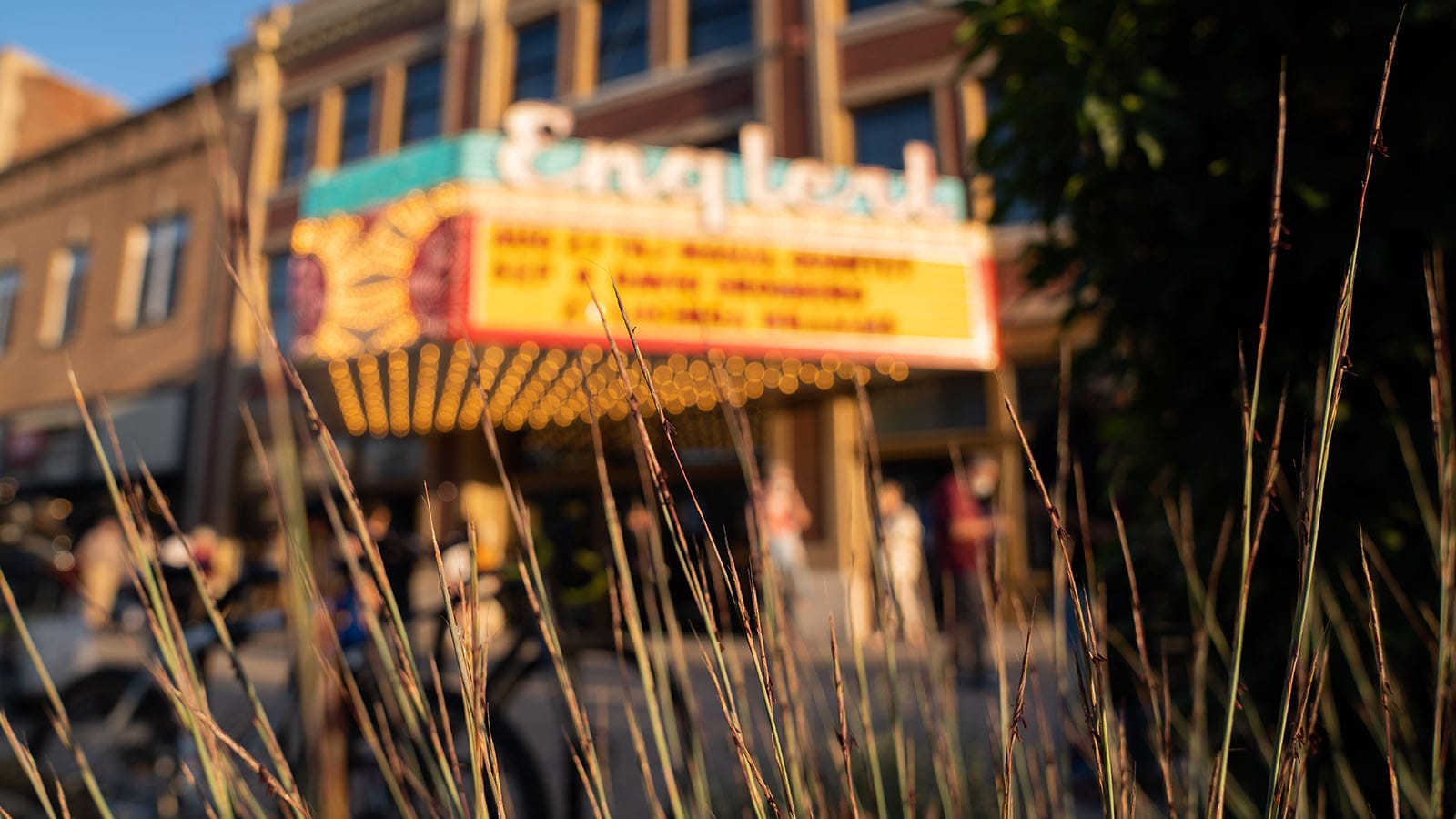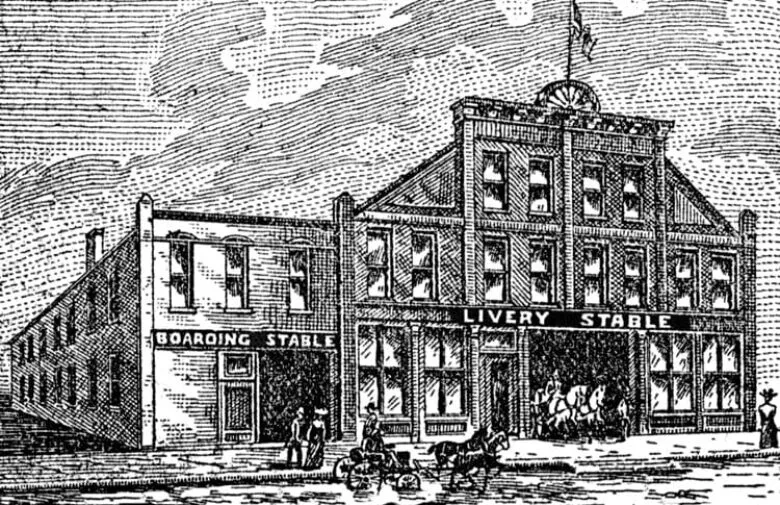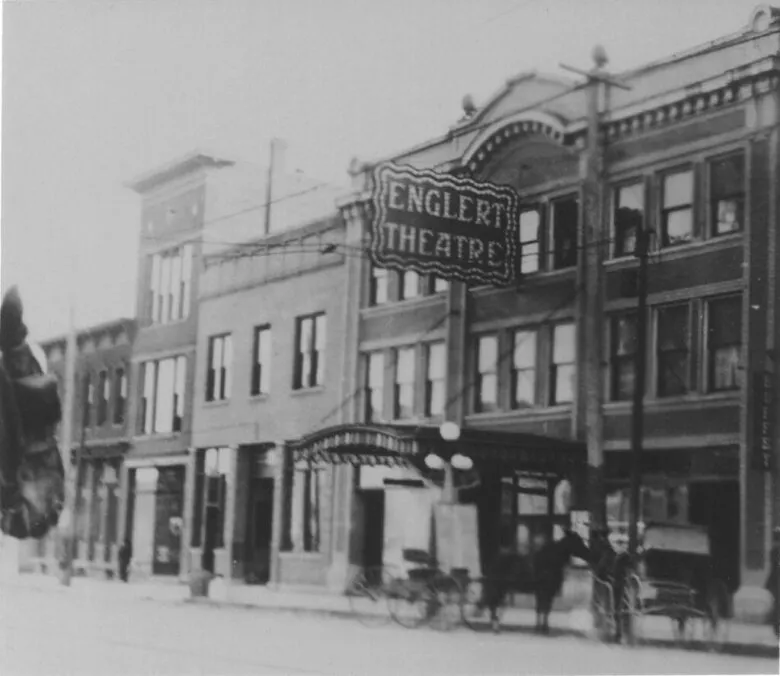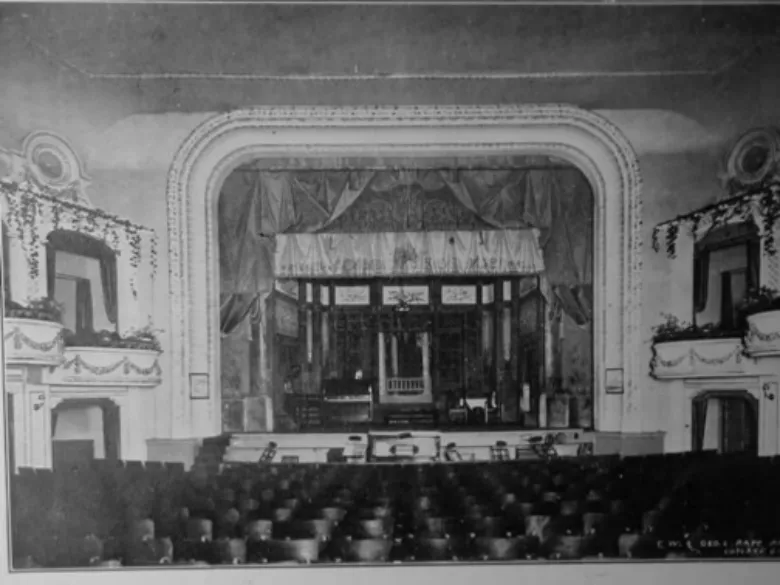Our History
On September 26, 1912, husband and wife William & Etta Englert launched an institution when they opened The Englert Theatre in downtown Iowa City, replacing what had once been a livery stable. They built the theatre to rival the finest stage and movie houses throughout the Midwest and to establish a vibrant community gathering space for local and regional citizens.
Vaudeville acts from across the world performed on the stage, and films—still an emerging art form at that time—were shown on the theatre’s state-of-the-art projection equipment. These exciting events welcomed community members into The Englert’s original 1,071 seats. Above the theatrics in the main hall, William and Etta resided on the theatre’s second floor and provided housing for traveling artists on the third.
In 1920, William Englert passed away at 46 years old. Following his death, business partners A.H. Blank and Nate Chapman purchased the business in 1921. Chapman, who had been based in Des Moines, had moved to Iowa City just a year earlier when he and Blank purchased the storied Garden Theater cinema, which would later become The Varsity, and then The Astro. The Blank and the Chapman families, through a line of committed descendants, would go on to steward The Englert’s existence for the remainder of the century.
After Nate Chapman died in 1925, his wife Dora continued to own and operate the theatre alongside A.H. Blank. Dora’s brother, Al Davis, also assisted with managing the facility.

On February 13, 1926, a fire nearly destroyed The Englert. Firemen fought to save the building as the blaze tore through the roof. Dora Chapman was there,as was Etta Englert, and she would later recount the scene to her grandchildren—Nathan, Katherine, and Barbara Chapman.
Despite $125,000 worth of damage to a property that had cost only $60,000 to build 14 years before, the theatre’s benefactors restored the building with an eye to the ornate aesthetic tendencies of the 1920s. In particular, significant investment from A.H. Blank made this rebirth possible. From the ashes, The Englert returned to the Iowa City community.
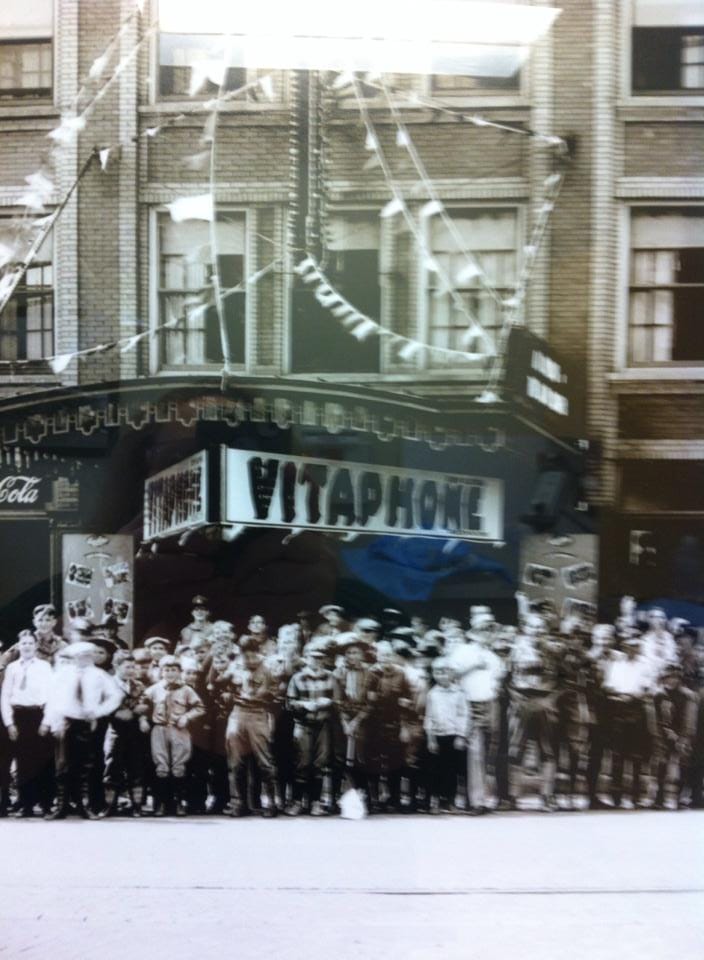
In time, the venue became a full-time movie house. In the 1980s, the singular theatre space was subdivided into two small-screen spaces. Likewise, the interior had been updated with gypsum board, paneling, carpeting, and acoustic ceilings. The owners during this period were Ansel and Marvin Chapman (sons of Dora) and Mike Blank (son of A.H. Blank) of Central States Theater Corporation.
As the end of the century approached, Mike Blank, in his 90s, sought to sell the business while he was still alive. He conferred with his partners, the Chapmans (whose various family members had migrated away from the core of Iowa City), about selling The Englert. Seeking to honor Mike’s wishes, the Chapmans agreed. In 1999, after nearly 80 years of caring for the building, they closed and sold The Englert.
A bar owner initially purchased the theatre and planned to turn it into a club. However, a group of local citizens envisioned an opportunity to renovate and restore the theatre to its original purpose: a performing arts and community gathering space for the people of Iowa City. This group of inspired locals persuaded the City of Iowa City to purchase the theatre and hold it in trust until funds could be raised for a newly formed nonprofit entity to purchase and renovate the space.
Over the next five years, this group worked diligently to rebuild The Englert as a premier arts venue and a hub in the Iowa City cultural scene. In part under the banner of “Save The Englert”, the group secured funds to restore The Englert to its 1920s glory. The names of contributors are memorialized throughout the building: a capital campaign wall in the lobby, plaques around the theatre, and on the backs of seats in the main hall.
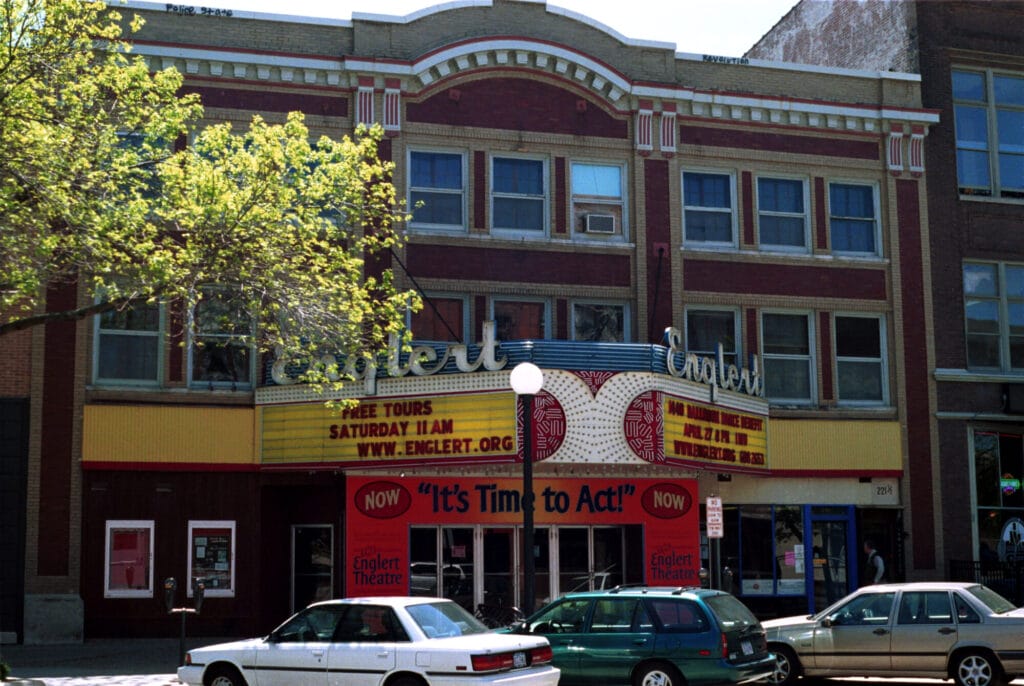
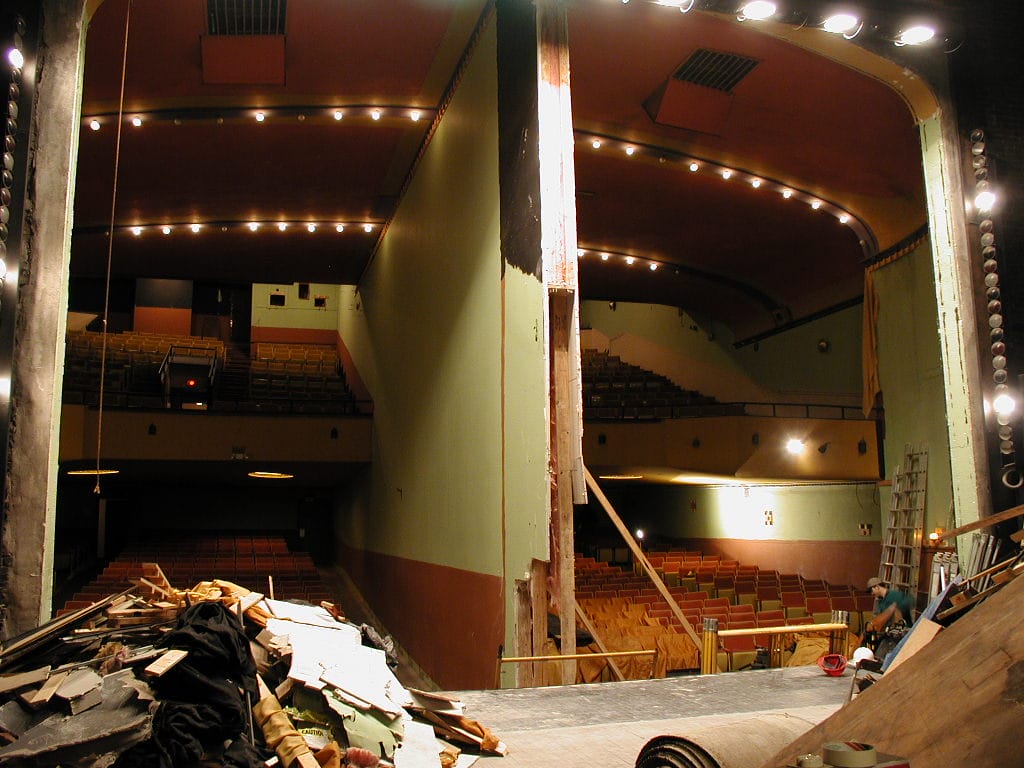
On December 4, 2004, The Englert returned to the community as a nonprofit with its first live performance in over 40 years. Since then, The Englert has become a leader in the Midwestern arts scene through its ongoing programming, partnerships with the community, its production of innovative festivals, its commission work with local and international artists, its commitment to the preservation of history, and celebration of the evolving cultural diversity of the Iowa City area.
Celebrating its 20th anniversary as a nonprofit in December of 2024, The Englert continues the original legacy of The Englert as stewards of the local arts community. The Englert is now comprised of over 60 staff and board members, all dedicated to bringing life-affirming art to Iowa City. In recent years, The Englert has served the community through educational opportunities for K-12 students and young college students, community engagement opportunities for local partners and artists, and diverse programming through ongoing series like Track Zero and Mission Creek Festival.
Thanks to the dedication of passionate and talented staff, volunteers, and community partners—not to mention, a growing and generous patronage—The Englert is positioned to continue its mission to inspire and activate positive community growth through the arts for many years to come.
